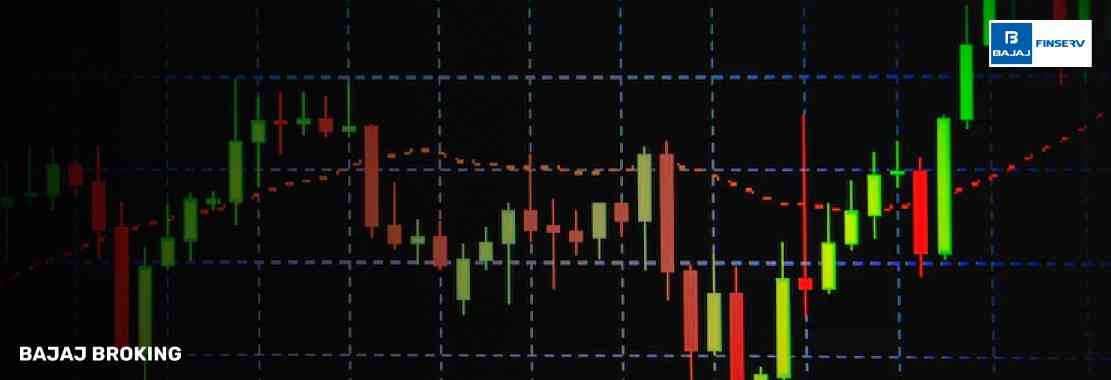An Over the Counter (OTC) market is more informal, almost like an open bazaar where deals are struck directly between parties. No central stage, no ringing bells.
In its simple sense, the Over the Counter Market is a decentralised space where buyers and sellers connect through broker-dealers instead of a formal exchange. Think of it like WhatsApp trading groups, but regulated brokers are the ones connecting the dots.
This setup works for small companies that struggle to meet exchange listing norms but still need capital. Of course, the trade-off? Less transparency, more risk.
How OTC Markets Work?
The way Over the Counter markets function is refreshingly different from the order-matching machinery of stock exchanges. Here, you don’t have a central hub dictating prices. Instead, you have dealers — almost like shopkeepers — quoting what they’re willing to sell at. You pick if the rate works for you.
Usually, these dealers communicate via phones, emails, or digital platforms. Once a deal is agreed upon, the dealer may even hold the security in their own inventory. Prices aren’t static; they ebb and flow with demand and supply, like haggling at a bazaar. This makes the Over the Counter Market flexible, but also leaves you exposed to counterparty risk.
Examples of Over the Counter Market Securities
Plenty of instruments pass through OTC channels. Unlisted stocks from smaller companies, for one. Then there’s currency trading, where banks form OTC networks to settle deals outside formal exchanges. Cryptocurrencies too — Bitcoin, Ethereum — often trade in Over the Counter Market setups where privacy matters more than flashy price tickers.
And derivatives. Those complex contracts that don’t quite fit the rigid molds of exchanges? Mortgage-backed securities, credit default swaps, customised swaps — many of these find a natural home in the OTC Market. They thrive on flexibility, though at the cost of higher risks.
How to Buy OTC Stocks in India?
Step 1: Locate trustworthy brokers
In India, not all brokerage firms trade OTC Market securities. First things first, determine if the brokerage firm is involved with unlisted stocks. All proper security firms are registered with SEBI and have a strong history of compliance.
Step 2 : Understand the Risks
If you want to invest in OTC stocks, you should understand the risk. Over the Counter markets can be highly volatile and investors can find it very difficult to exit. Avoid hasty decisions by punishing reasonable disclosures and managing the relevant scepticism with every possibility of investing.
Advantages and Disadvantages of OTC Trading
Advantages
1. Access for smaller companies
Over the Counter Market gives emerging firms a chance to raise funds even if they can’t list on a traditional exchange. With lighter regulatory requirements, they get access to capital and investors sometimes stumble across interesting opportunities.
2. Flexibility of trade
Unlike exchanges that thrive on standardisation, OTC trades can be customised — whether that’s tweaking settlement terms or handling bulk deals. For institutional investors, this flexibility is valuable, though it comes wrapped with its own risks.
Disadvantages
1. Risk of fraud
Because regulations are thinner, the Over the Counter Market can attract dubious players. Pump-and-dump schemes? Not unheard of. Without strict governance norms, spotting fraudulent companies can be tricky, so finding trustworthy brokers becomes crucial.
2. Liquidity challenges
Another problem is liquidity. Imagine buying a security today but struggling to sell it tomorrow because buyers are scarce. That’s a recurring issue in Over the Counter markets. The exit door is narrow, and sometimes it just won’t open.
3. Low Transparency
Whereas companies listed on exchanges will typically disclose fully-loaded financials, Over the Counter Market participants typically make far fewer statements about their companies' performance and disclosures. This low transparency means investors operate with incomplete data—and more risk when making decisions.
Additional Read: Types of Bond Market in India
Things to Keep in Mind When Trading in OTC Stocks
Now that you understand Over the Counter Market, here are the key points that you need to keep in mind when trading OTC stocks.
1. Due Diligence Is Crucial
It is essential that you research the Company. Because there are fewer disclosures with Over the Counter Market securities, you will require greater depth of research - annual filings, news reports, management credibility. Don't just read the headline.
2. Accept Illiquidity Upfront
Assume it might take longer to sell your holdings. If you’re investing in Over the Counter Market stocks, liquidity constraints are real. So, don't commit money that you might need right away.
3. Broker Reliability Matters
Your choice of broker can define your experience. Work only with trusted, SEBI-registered dealers who specialise in OTC transactions. That extra layer of safety is worth it.





